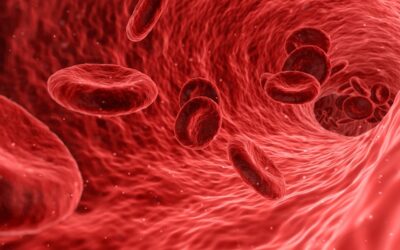The human brain is capable of dramatic reorganization of its structure and function when faced with injury. But what is the extent of this reorganization, and what principles underlie this “plasticity” of the brain? Are there any constraints on which regions can take over which functions during early development?
A new study published in the journal PNAS has attempted to answer some of these questions by studying language development in young adults who had a stroke as infants.
Remarkably, the authors of the paper found that these young adults, who had suffered damage at birth to regions in the left hemisphere where sentence processing takes place, were able to completely recover this, thanks to areas in the right hemisphere of the brain taking over.
When the stroke patients were compared to their healthy siblings on language tasks, it was found that there were no significant differences between them in basic as well as complex sentence processing.
MRI affords a peek inside the brain
To learn about which regions of the brain were being used by the participants during the language tasks, the scientists used a specialized MRI technique, called functional MRI or fMRI, which measures changes to blood flow that occur when a region of the brain is active.
Healthy participants showed activation in the left hemisphere during sentence comprehension exercises, where they heard sentences like “A big gray animal is an elephant” or “A big gray animal is a banana”, and were required to respond if the sentence was correct or incorrect. The participants in the stroke group, on the other hand, showed activation the right hemisphere in an area of the brain typically involved in the processing of vocal emotion— the expression and recognition of emotions in voices.
The brain’s right hemisphere takes over
Elissa Newport, lead author of the study, says that what she found most interesting about these findings is that the stroke patients were nearly indistinguishable from their healthy siblings in both the processing of sentences and vocal emotion. The right hemisphere in the stroke participants still supported vocal emotion processing, but in slightly different sub-regions than those that had taken over the sentence processing function.
According to Newport, these findings suggest that “the two hemispheres early in life are not so different from each other. If you have enough damage to the left, the right hemisphere is going to become better and take over the function of the left.”
This begs the question of what is different in the brain of adults that prevents them from recovering lost language function as effortlessly after a stroke. “Something that is also clinically promising is to examine how we can get those regions in the other hemisphere to function again if you are an adult and you had a stroke,” said Newport. “Is there some residual function that we could stimulate with brain stimulation techniques like transcranial magnetic stimulation and try to help adults recover from stroke?”
Studies on recovery from infant and childhood stroke not only help answer questions about the principles underlying brain plasticity, but can also provide a framework through which to understand the limitations of the adult brain and how to overcome them.
Reference: Elissa L. Newport, et al., Language and developmental plasticity after perinatal stroke, PNAS (2022). DOI: 10.1073/pnas.2207293119
Feature image: Khoa Pham on Unsplash

















